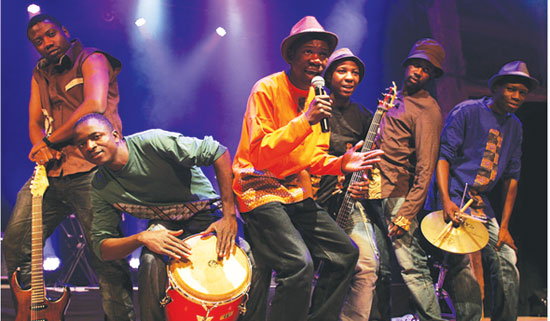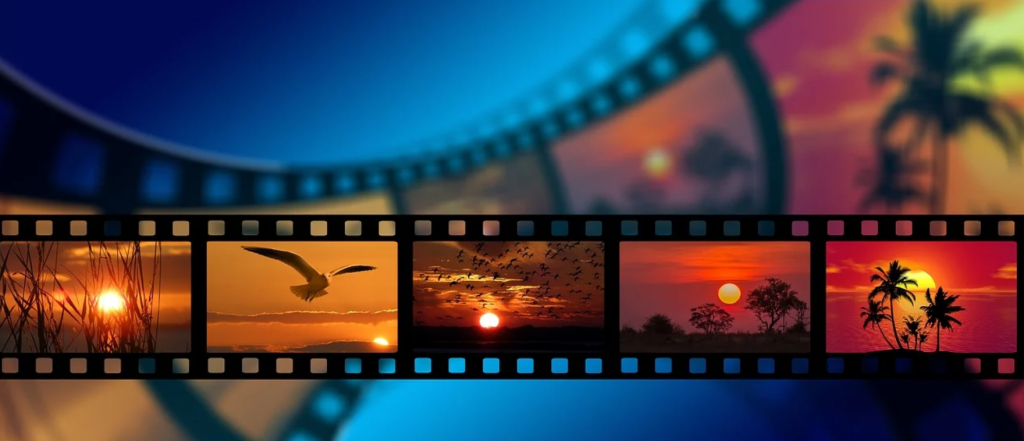
RISING Victoria Falls band Mokoomba was last month tipped to be the “African band to watch this summer” by top CNN anchor Becky Anderson.
Despite their youthfulness and the fact that they sing in Tonga, considered a minority language in Zimbabwe, the six-member outfit is already being titled as one of the top bands from Africa currently rocking festivals in Europe.
Southern Eye (SE) caught up with Abundance Mutori (AM), Mokoomba’s bass player and spokesperson as they prepared for an appearance at the Maschsee Festival in Hannover, Germany last night. Below are excerpts of the interview. SE: What influenced choice of the name Mokoomba?
AM: The name Mokoomba for us is a concept. It signifies the mighty Zambezi River as a vibrant part of our cultural and spiritual life, a provider of food, water and recreation for the baTonga people.
SE : How did you start the group and what were the group members doing before joining Mokoomba? AM: We all grew up in the same township of Chinotimba in Victoria Falls and went to the same schools and churches.
We would always get together to play music in our spare time until we decided to form a band. A few months after forming our band we entered the Music Crossroads programme which gave us the opportunity to attend workshops and participate in their inter-regional competitions which resulted in us winning the opportunity to record and tour for the first time.
SE: As young people what influenced you to venture into the Afro-jazz genré which is considered to be a genré for the old and mature?
AM: Our music is generally classified as Afro-fusion. We wanted to find a way to fuse our Tonga traditional rhythms and songs with the funk, reggae, soukous, Afro-latin and pop influences that we got from listening to radio and our parents music collections. The reason for such a mish mash was to create many entry points to the widest audience possible and I think we are succeeding.
- Chamisa under fire over US$120K donation
- Mavhunga puts DeMbare into Chibuku quarterfinals
- Pension funds bet on Cabora Bassa oilfields
- Councils defy govt fire tender directive
Keep Reading
Our music is not only transcending age boundaries, it is transcending borders too. SE: What challenges do you face and you faced starting the group, considering that Victoria Falls is not known for producing artistes?
AM: The main challenge for us as youngsters, was the availability of quality music instruments. We had a bit of music education at school, but the instruments there where sub-standard.
I guess we were lucky to even have that because in Zimbabwe, quality music education is only available in expensive schools, something that our government must make an effort to address.
We got the most help from the late Alfred Mjimba, a well-known musician in Victoria Falls who would offer us rehearsal time at his house and also a chance to play in his band.
SE: Where do you draw your inspiration from? AM: Our inspiration comes from the fact that our music has great potential to showcase the best of our baTonga and Lubale culture and tradition to the rest of our country and to the world, promoting and celebrating the diversity and indigenous knowledge that exists in Zimbabwe.
SE: Any top artistes you have worked with, be it on the debut album or shows? AM: We have been very fortunate to work with quite a number of top artistes in the last few years. Under our agency Zig Zag World, we have been working with great bassist Manou Gallo who was our producer for our critically acclaimed album Rising Tide. She has also collaborated with us on our live performances at Harare International Festival of the Arts (Hifa) and Afro-Pfingsten Festival and continues to be a mentor sharing her experience and expertise.
In 2009, we did the track Messe Messe with Dutch DJ Gregor Salto for the StandUp anti-poverty campaign as well as an EP titled Umvundla under the Africa Unsigned label. Gregor Salto joined us for a pioneering Hifa main-stage act in 2012. This year we had the honour of collaborating with Senegalese legend Baaba Maal at the closing concert at Hifa.
Our hope is to keep working with artistes local and international in creating the most innovative concerts and great music. SE: Seems like you have made a great impact outside the country than locally, don’t you feel like you are shortchanging Zimbabweans?
AM: I think for a young band, we have made decent progress locally as well as internationally. Our audience in Zimbabwe is growing albeit rather slowly and it is now a priority for us to play more concerts and distribute our music countrywide.
SE: Since you have travelled a lot, what have you learnt and brought home and to the arts industry of Zimbabwe? AM: As a band, we always learn a lot when we travel and we share our experiences.
We watch other bands perform, listen to different types of music, talk to industry professionals, so as to improve our own act and our understanding of the evolving music industry. We also look at how events are managed for example, paying attention to small details like keeping time, sound and equipment quality and the treatment of musicians, among other things — which are all areas that local artistes feel need to be improved by local promoters.
SE: Mokoomba has grabbed the limelight abroad, but is not well known in Zimbabwe, what do you attribute this to? AM: We cannot say that we are hardly known in Zimbabwe when we have a fantastic and growing audience that loves our music. Admittedly, we are not as popular as other bands, but at this early stage in our careers, we are making good progress and putting enormous effort into exposing many Zimbabweans to our music.
We have been addressing concerns about people not understanding the languages that we sing in by posting translations of our lyrics on our website. This, however, is not a substitute to people making genuine efforts to understand each other despite our diversity and size.
Music is indeed a universal language, that is why for many years, we in Zimbabwe, have enjoyed Congolese rhumba, South African gospel for example. Delivering music effectively to the local market means all the players in the music industry must play their part. As Mokoomba, we are making music and we hope that if we get sustained Press coverage, consistent airplay on radio and television as well as fair deals from venues and promoters, our local fortunes will change dramatically.
SE: What do you promise your fans when you return home? AM: As soon as we return, we will hit the ground running, resuming our live performance schedule in Victoria Falls then travelling to Harare, other towns and cities.
SE: What should we expect from you at the United Nations World Tourism Organisation summit? AM: We would like to congratulate the Tourism ministry for bringing this prestigious event to Zimbabwe. It would be a very proud moment for us, if we are included in musical/entertainment showcase, to help market the country as a safe tourism and business destination in our home town, Victoria Falls.
Lastly we would like to express our heartfelt condolences to the Maraire family and friends on the untimely passing of Chiwoniso Maraire, a giant who paved the way for many young artistes in Zimbabwe and was loved at home and around the world.










